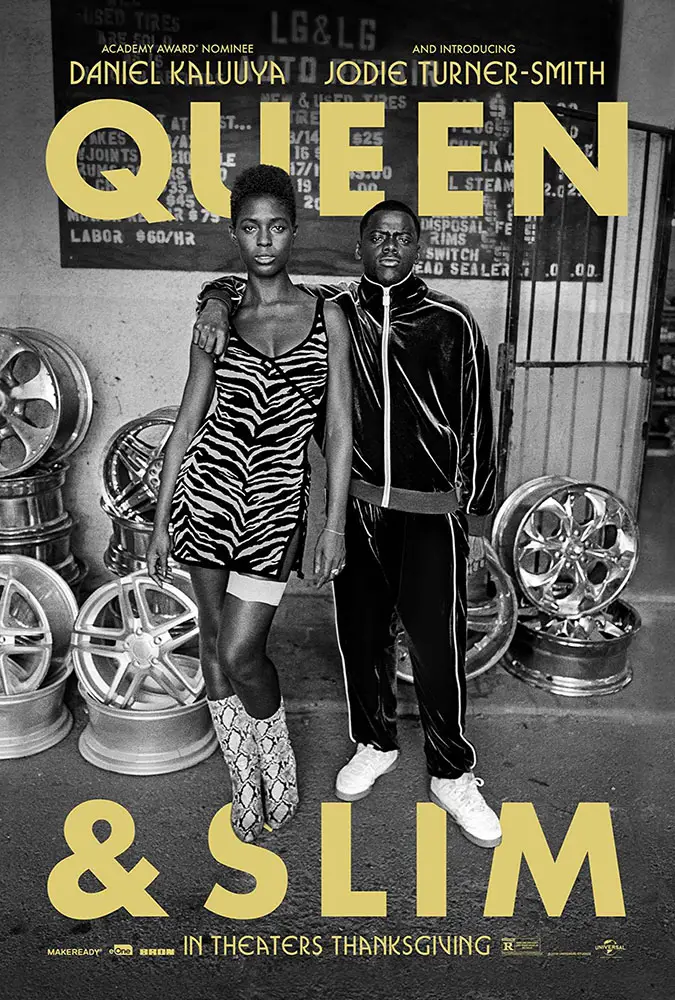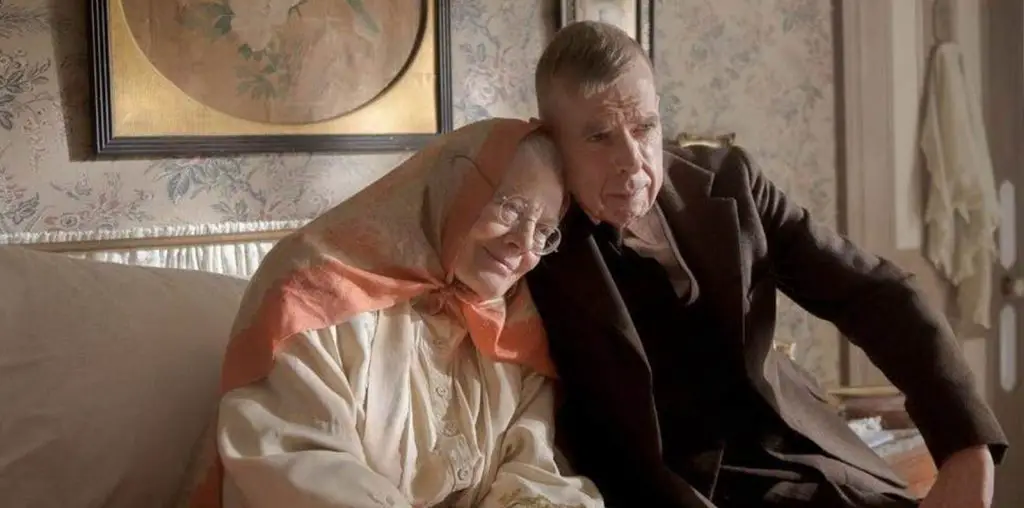
“Out there, he ain’t s**t,” one of Earl’s girls tells Queen about her uncle, “but in here, he’s a king.” This line beautifully summarizes the film’s prevalent theme, that of black people in the U.S. being forcefully marginalized, given the false impression of a semblance of power. Through their protagonists, their journey and the characters they encounter, Matsoukas and Waithe examine the black identity, but also pay tribute to their community, lovingly portraying America’s black culture. In that sense, the film maintains a delicate balancing act of being both lyrical and (rightfully) outraged.
Another stand-out sequence takes place in a blues bar, a splendid reiteration of the African-American contribution to music, but also a highly eloquent, erotically-charged scene in of itself. Speaking of which, the film’s soundtrack, consisting of a wide variety of R&B tunes (from Roy Ayers to a new jam from Lauryn Hill), is pure ear candy. The filmmakers effortlessly fuse image and sound, making for a wholly immersive experience.

“…black people in the U.S. being forcefully marginalized, given the false impression of a semblance of power.”
What really buoys the feature is the acting from its two leads, whose chemistry absolutely sparks. His eyes wide, directly channeling his soul, Kaluuya excels as Slim. “What if God wanted me to die, and I messed up his plan?” he wonders (faith/religion plays another significant role in the feature). Newcomer Turner-Smith effortlessly steals scenes as Queen. He’s short and chews with his mouth open; she’s a tall, sophisticated queen – if anything, the film couldn’t be more aptly titled. The rest of the cast also shines, although Flea and Chloe Sevigny barely show up (as a couple!) to make an impression.
Where the film doesn’t entirely succeed is truly maintaining a coherent stylistic tone, truly ratcheting up the tension, truly standing out from the crowd of chest-thumping “polemic films” that Hollywood has been churning out lately. Disregarding the thick blanket of meaning coating it, the plot is “been-there-done-that” stuff, predictable and flimsy. Queen & Slim’s heavy-handed approach weighs the entire thing down, most evident in a revolt sequence that juxtaposes a sudden act of murder against our heroes’ lovemaking (and consequently brings to mind that icky sequence from Spielberg’s Munich). A lot of already-obvious points are hammered home. Waithe’s dialogue vacillates between poetry and spoken-word-like pomposity. During the premiere, some sequences of policemen being shot provoked hoots and claps from the audience. I’m not entirely sure this was Matsoukas’ intention.
“This film is a love letter to blackness,” Lena Wraithe said when introducing Queen & Slim in a heartfelt speech. Their film is similarly heartfelt, filled with perfectly-tuned little moments that manage to shine amidst the speechifying. Those talented women aimed to imbue their painting with subtle shades of grey, yet everything turned out starkly black and white.
Queen & Slim screened at the 2019 AFI Fest.

"…Melina Matsoukas’ by turns powerful, overwrought, poetic, earnest, and pretentious debut feature."


